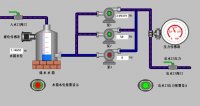基于PLC的恒压供水控制系统设计(附CAD图,PLC程序)(任务书,开题报告,外文翻译,论文说明书20000字,CAD图2张,MCGS组态,PLC程序)
摘 要
本文根据供水系统的原理和结构,提出相关的设计控制方案通过比较斟酌,最后确定采用传感器、变频器、PLC来实现恒压供水和数据传输。
本文运用PLC及对应PID模块编程控制来满足变频恒压供水控制要求。同时,采用MCGS组态软件,对变频恒压供水控制系统平台进行组态模拟操控。最后,通过数据量对接,实现PLC控制程序与MCGS组态的实时互联,即通过MCGS平台进行数据传输以达到监控系统的要求。同时,系统本身还加入了报警检测功能,针对压力、水位变化情况,作出相应反应,使系统总体设计以及软件实现的安全性及可靠性大大提高。
本文旨在为变频恒压供水控制系统平台提供一个方便的解决方案,该系统安装与维护成本低,同时具有良好的操作性能且系统结构稳定。它极大提高了工作效率和供水质量,适于工业应用。
关键词:变频控制 恒压供水 PLC MCGS PID调节
Design And Implementation Of Constant Pressure Water Supply System Based On PLC
Abstract
According to the understanding of the structure of constant pressure water supply system and how it works,this paper supplies a set of designs on the system.By comparison,the system is made up of transducer,PLC and frequency converter to realize constant pressure water supplying and data transmission.
PLC and some PID(proportion integration differentiation) modules are used to meet the demands of VF constant pressure water supply system.Meanwhile,this paper develops good operation management interface using MCGS.In the end,we connect the MCGS interface with PLC control programs through data transmission,which means that we meet the acquirement of system monitoring by data connection on MCGS platform.At the same time,the system has the function of alarm detecting so that it can reflect according to the change of water level and pressure,which greatly improves the safety and reliability of system itself.
This paper aims to provide a convenient solution for variable frequency constant pressure water supply system. It also has lower installation and maintenance cost, provides reliable operation,robust and flexible construction.It greatly improves the efficiency and quality of water supplying,suitable for industrial applications.
Key Words:VF control; Constant pressure water supply; PLC; MCGS; PID control
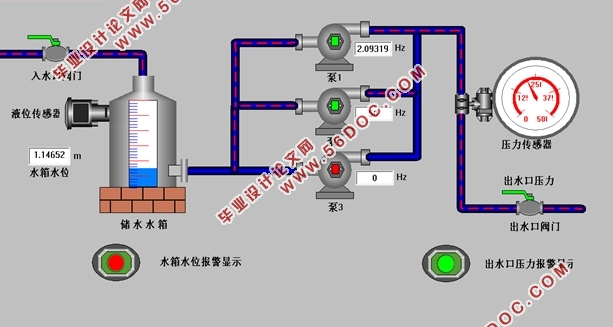
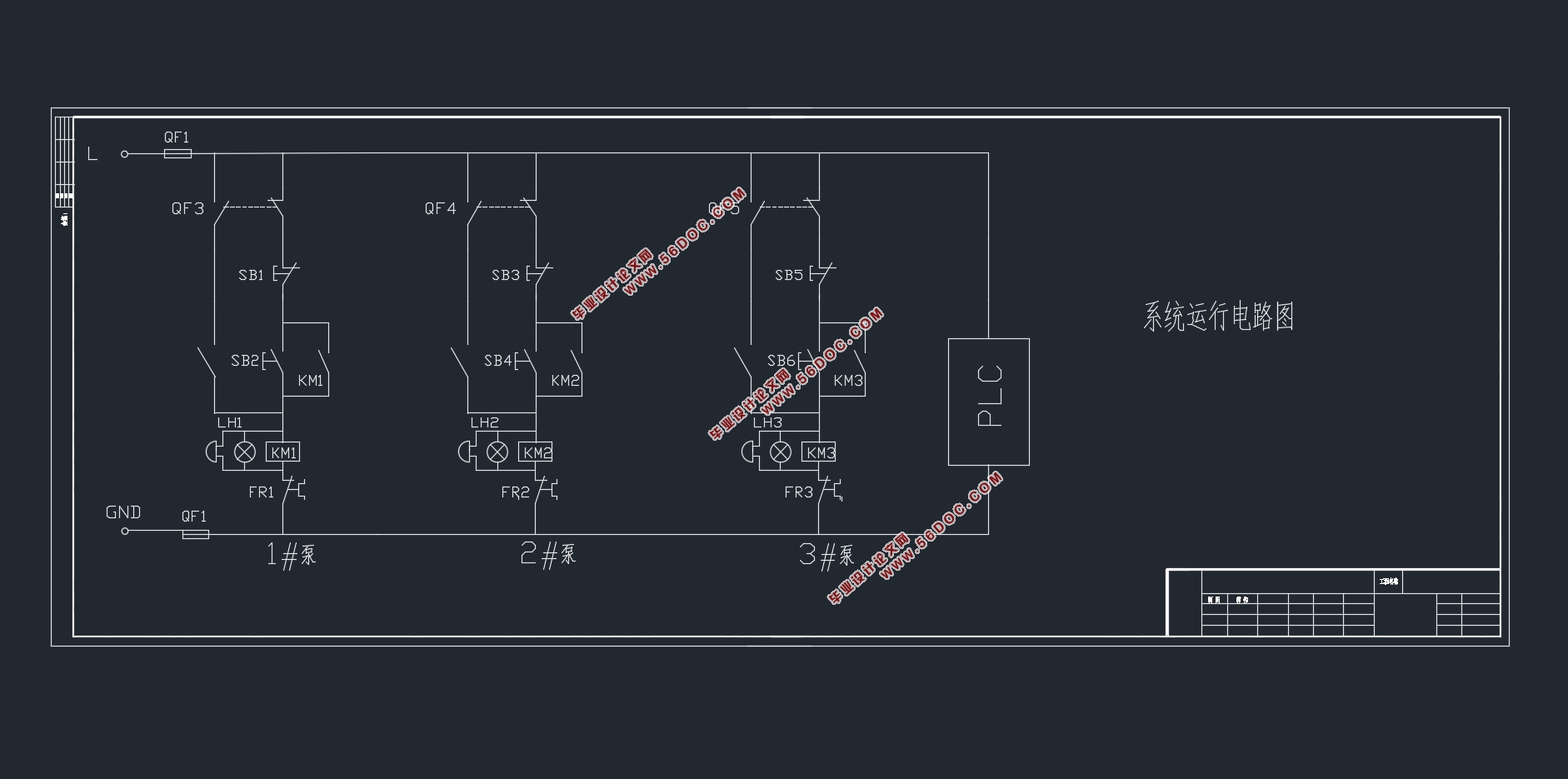
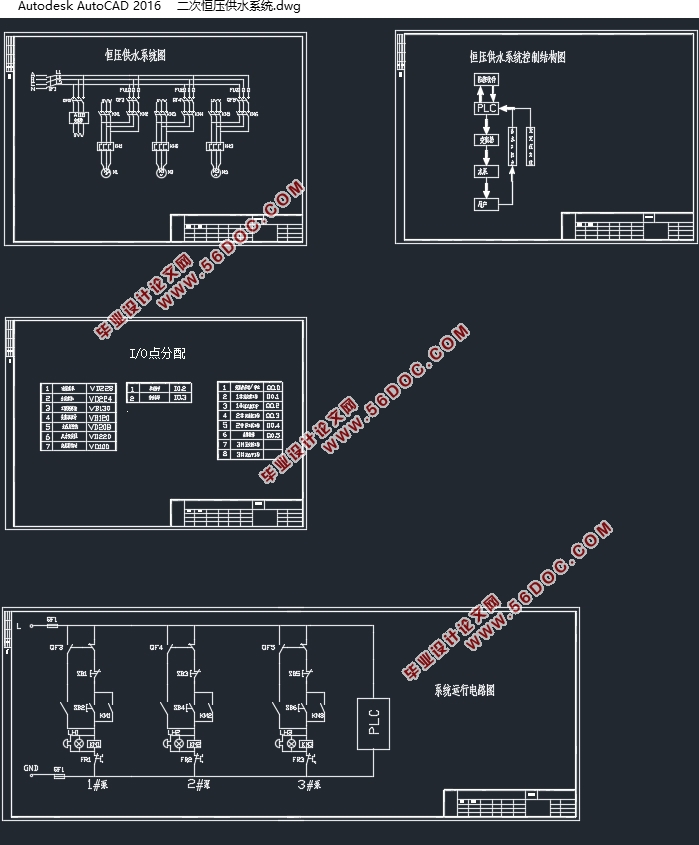
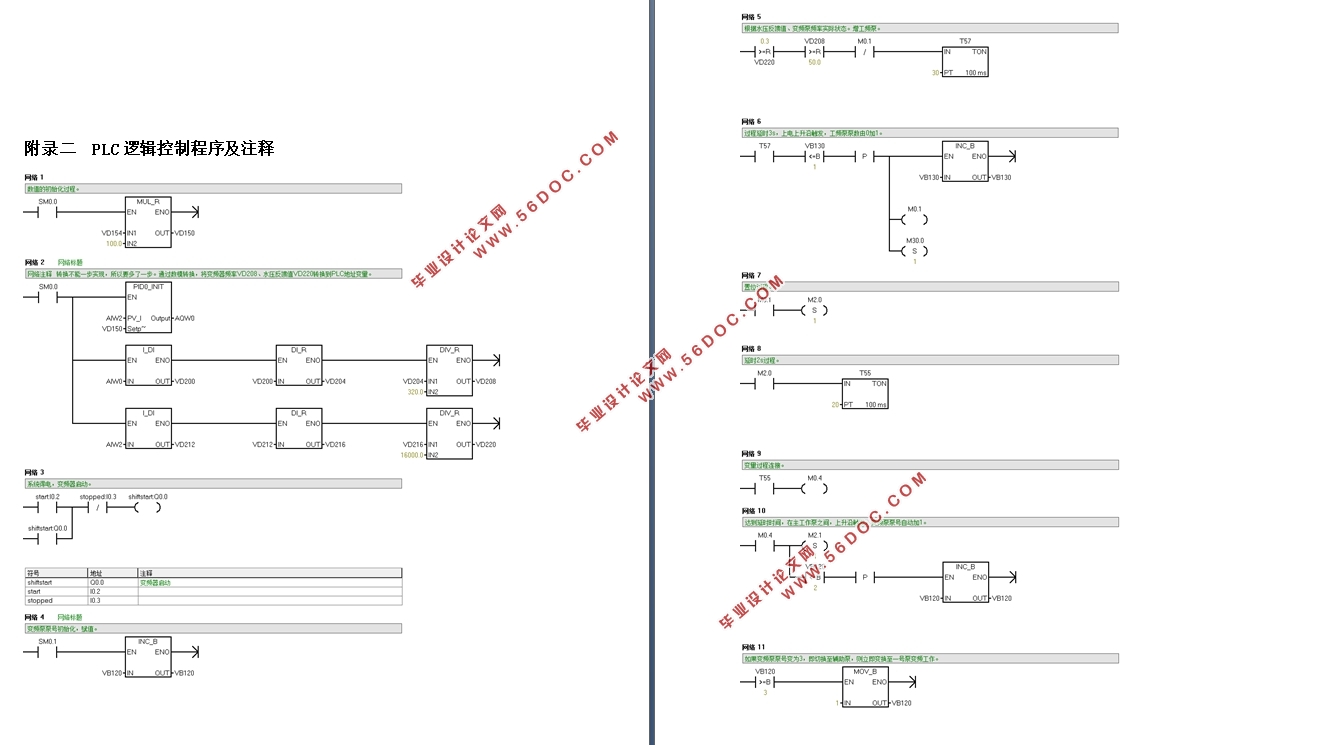
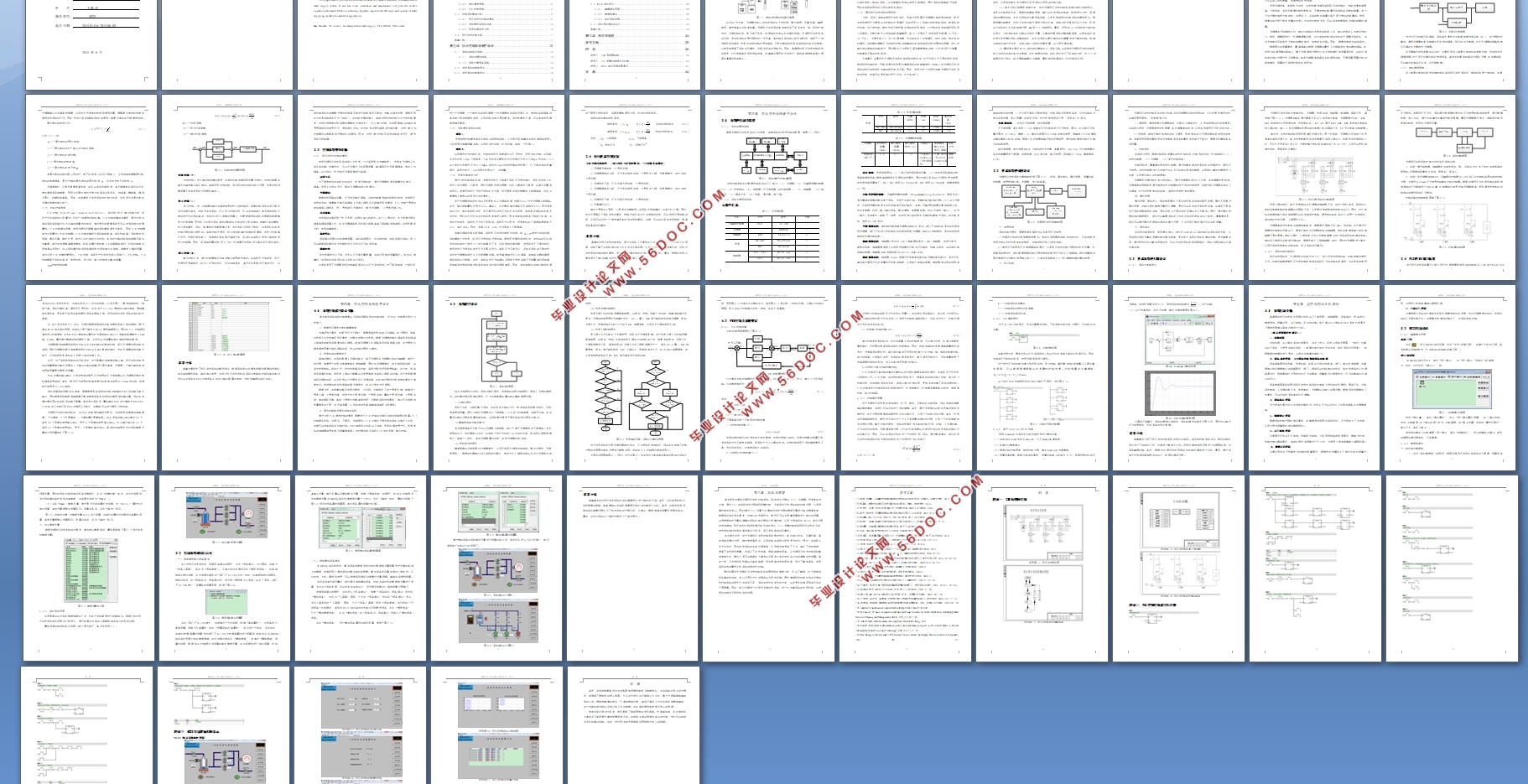
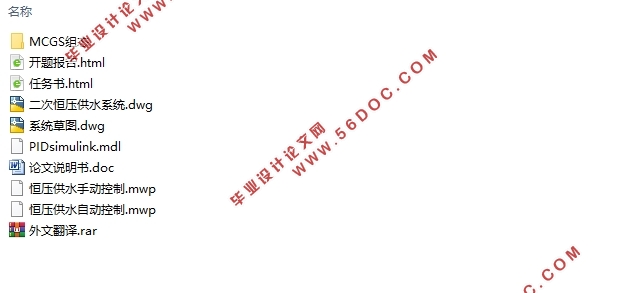
目 录
摘 要 I
Abstract II
第一章 绪论 1
1.1 选题背景及意义 1
1.2 国内外恒压供水系统发展现状 2
1.2.1 国外恒压供水系统发展现状 2
1.2.2 国内恒压供水系统发展现状 2
1.3 本课题的主要研究内容 3
本章小结 4
第二章 系统原理及控制方案 5
2.1 恒压供水工艺简介 5
2.2 变频恒压供水工作原理 5
2.2.1 变频器工作原理 6
2.2.2 电机调速原理 6
2.2.3 PID控制原理 7
2.3 控制系统整体分析 9
2.3.1 恒压供水对控制的要求 9
2.3.2 系统要求实现的功能 10
2.3.3 水泵切换条件分析 10
2.4 恒压供水控制方案 11
本章小结 11
第三章 供水控制系统硬件设计 12
3.1 系统的组成及选型 12
3.1.1 系统的硬件组成 12
3.1.2 系统主要设备选型 12
3.2 供水系统的结构设计 14
3.3 供水系统的电路设计 16
3.3.1 系统主电路设计 16
3.3.2 系统控制回路设计 17
3.4 PLC的IO端口配置 18
本章小结 20
第四章 供水控制系统程序设计 20
4.1 系统控制程序设计分析 20
4.2 系统程序设计 21
4.3 PID控制及参数整定 23
4.3.1 PID控制规律 23
4.3.2 控制模式设置 24
4.3.3 PID模块程序 25
4.3.4 基于Simulink的PID仿真 25
本章小结 26
第五章 监控组态设计与调试 27
5.1 系统组态分析 27
5.2 MCGS组态设计 28
5.2.1 编辑建立界面 28
5.2.2 数据库建立 28
5.2.3 监控系统界面 29
5.3 组态系统调试与运行 30
本章小结 33
第六章 总结与展望 34
参考文献 35
附 录 36
附录一 CAD原理图绘制 36
附录二 PLC逻辑控制程序及注释 37
附录三 MCGS组态界面组图显示 41
致 谢 44
|
